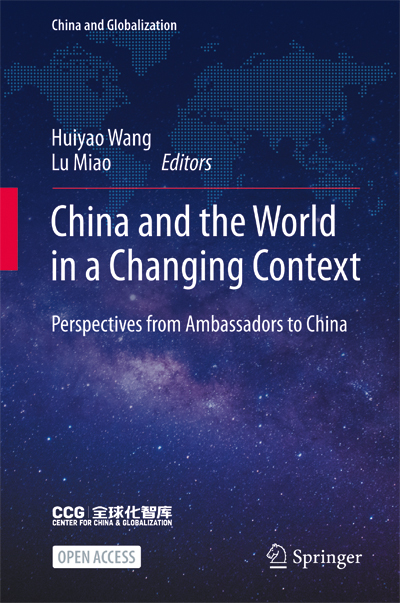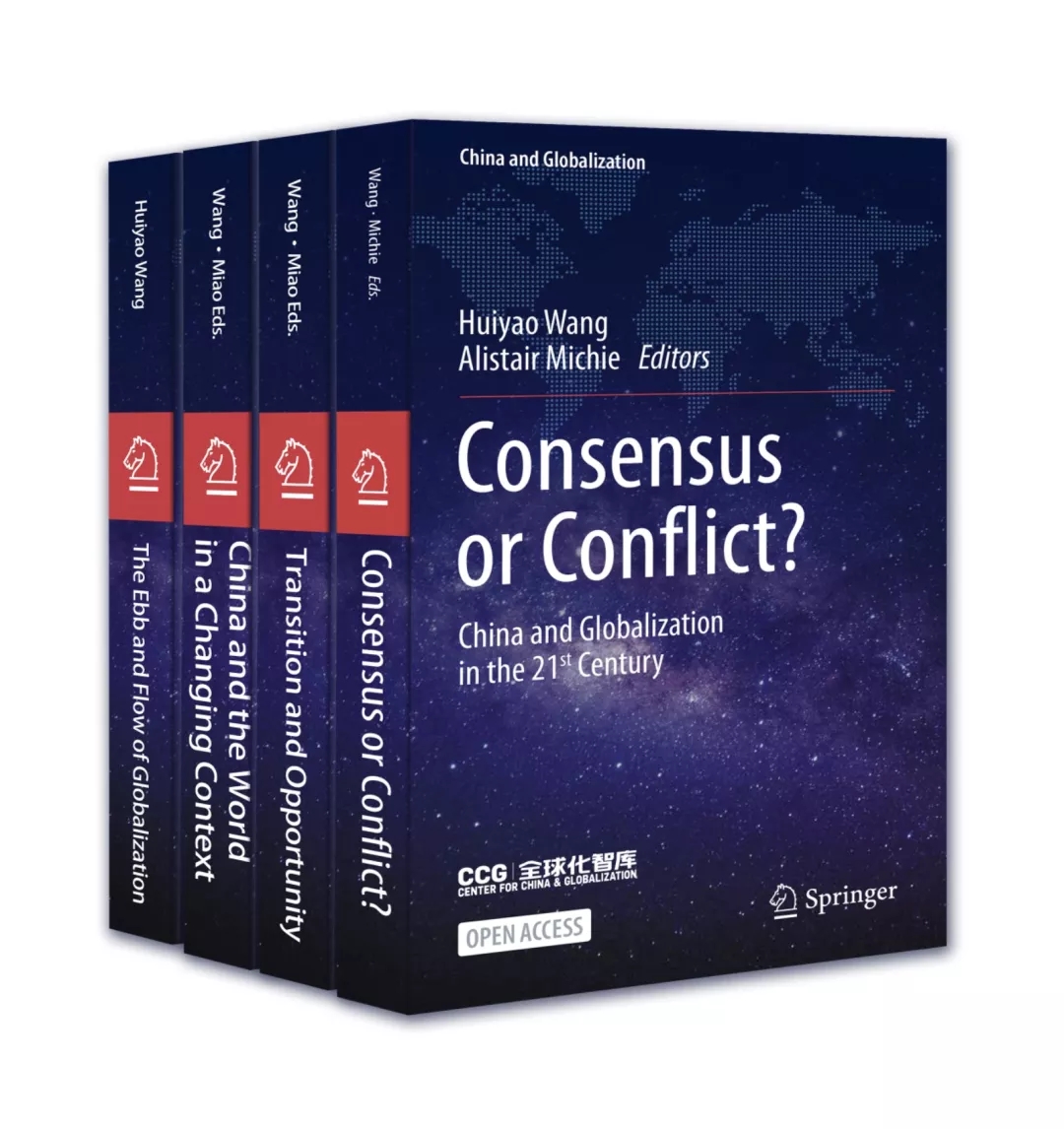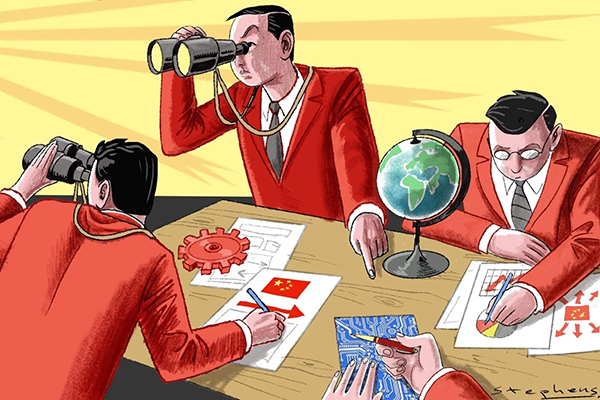Ambassador, Head of Delegation of the European Union to China: On the Need of China to Now ‘Walk the Talk’ in Global Trade
April 18 , 2022“The EU is China’s number one trading partner, but the EU plus ASEAN equals 2/3 of China’s strength. We are major trade and investment partners and we want to push that relationship forward.”
——H.E. Mr. Nicolas Chapuis, Ambassador, Head of Delegation of the European Union to the People’s Republic of China
I want to stress that I really appreciate, as I’ve seen this morning, the quality of the reports, the contribution you make to the debate on the economy in this country, especially under presents circumstances. We understand that our decisions have to be made in the next few weeks and months, while debating the 14th Five-Year Plan and I was surprised not to hear so much about that 14th Five-Year Plan yet. But this is capital for us to know where China will make its choices. I like something that someone said earlier this morning, that the only thing that benefits China in the mid and long term is reform. And if it benefits China, then it benefits Europe because 30% of global growth will come from China. So we need a strong China to have a strong recovery elsewhere, because when you recharge your phone, if there is no electricity, you have no more phone. We need China’s power to continue to drive global growth.
First we had the EU and China, and now we need to add ASEAN, because ASEAN has overcome this year. The EU is China’s number one trading partner, but the EU plus ASEAN equals 2/3 of China’s strength. We are major trade and investment partners and we want to push that relationship forward. We need the juice, but right now there’s not much juice, because the orange is not ripe. So, how do we do that? The news today is about the opening up of services and the free trade zone in Beijing. What we see when we look at the figures is that we are falling short of what we are doing worldwide. Trade and services in China are not at the level of what is done elsewhere in the world and this is the reality of a closed market. So, services, as President Xi has said, should be open. We want to be a service trade country, especially in the technologies of tomorrow, but in five years we need to see our trade service figures multiplied by two because that’s outstanding in the world. We are fighting the virus together, but where is the share of EU pharmaceutical and bio tech companies of investment and trade in China. Nowhere. Why? Because it’s closed. There is a negative list and no foreign investment in what matters most. How can you say that you want global cooperation with the WHO and we are all global partners to fight the virus and not allow investment, especially EU investment, in genetics and pharmaceuticals. Now you’re seeing all the European countries debating very seriously how to repatriate the pharmaceutical industry to Europe. We have to fill the gap between reality and promises as soon as possible.
This is also true in digital. Why does Huawei have a 40% market share in Europe? And why do Ericsson and Nokia, two European 5G companies, only have a total 11% market share in China? Sometimes you say Huawei’s products are better, but I need proof. Qualcomm would have some ideas about that which products are better. We are more expensive, yes, but there is a reason for that. We just hope that China acknowledges that the European Union is a mature service economy, and at a time when it decides to make big strides in service industries, that we are welcome. But that means we should have more cooperation between the EU and China in services. Opening the service sector to European companies to contribute our expertise and know-how would help in this respect. We should have a trade services environment where we’re all at the starting line and we all run and compete in good faith with the best possible products. In services, we just signed a very important free trade agreement with Singapore a few months back. It is one of the most developed agreements, especially on services, because Singapore is an incredible logistical platform in Asia.
We are currently finalizing the negotiations of an investment agreement with China, but it’s difficult. In that agreement, we have three chapters that clearly describe what I just say. The first chapter is about a level playing field and no discrimination between companies whatever nationality these companies are. The second chapter is about market access. We understand that China wants to protect some sectors, but it should allow more access now, because this access was promised in President Xi’s speech in Davos four years ago. Now is the time to walk the talk. And the third chapter is about labor laws and labor regulation, because it is becoming a very important topic worldwide. It is a pity that China, as it becomes one of the major economies today, has not yet reached the level of obligations of the International Labor Organization. This is going to become a problem for multinationals in China. Disney’s, new movie Mulan is being attacked worldwide, because people are asking about the filming conditions in Xinjiang. There will be more and more questions on labor laws, forced labor, child labor, and respect of norms and standards under the ILO framework.
To conclude, we are seeking improvement in China’s market, not only for our own sake, but for the sake of globalization, because the alternative, I want you to think about for a few minutes, is “zi li geng sheng”(自力更生)—self reliance. But the reality is that if there is a disaster in China, there will be a disaster in the world, including in Europe.
Adapted from the transcript of a speech presented at the 7th China Inbound-Outbound Forum (September 2020).

Perspectives from Ambassadors to China
Editors: Huiyao Wang, Lu Miao
Published in March, 2022
ISBN: 978-981-16-8085-4
Publisher: Springer Nature Publishing Group
Download Book at Springer
https://link.springer.com/book/10.1007/978-981-16-8086-1
CCG’s new book China and the World in a Changing Context: Perspectives from Ambassadors to China has been released online. This open access book presents China and a changing globalized world from the perspective of 23 ambassadors to China, covers key development topics including economic growth, foreign policy, and SDG-related themes.

Series Editors: Huiyao Wang Lu Miao
Publisher: Springer Nature Publishing Group
Topical News See more







